new posts in all blogs
Viewing: Blog Posts Tagged with: BIGWIG, Most Recent at Top [Help]
Results 26 - 50 of 125
How to use this Page
You are viewing the most recent posts tagged with the words: BIGWIG in the JacketFlap blog reader. What is a tag? Think of a tag as a keyword or category label. Tags can both help you find posts on JacketFlap.com as well as provide an easy way for you to "remember" and classify posts for later recall. Try adding a tag yourself by clicking "Add a tag" below a post's header. Scroll down through the list of Recent Posts in the left column and click on a post title that sounds interesting. You can view all posts from a specific blog by clicking the Blog name in the right column, or you can click a 'More Posts from this Blog' link in any individual post.
I love writing, but I can’t do it for long.
I do it in quick bursts (30 or 40 minutes is usually enough) then I need a break, partly to recover emotionally from the fight or chase or argument I’ve just written, partly to get up from the chair and keyboard to give my body a change of posture, and partly to give my brain time to consider solutions to the questions and problems that particular burst of writing has thrown up.
So on the rare and wonderful days when I have all day to write, I don’t spend all day writing. I do a variety of things to take a break, at least once an hour. And over the years, I’ve discovered things which REALLY don’t work as breaks from writing:
Logging on to my email or twitter or facebook or even lovely blogs like this, because I get involved in conversations then feel rude if I break them off to get back to writing, and anyway it doesn’t give me a break from the screen and keyboard.
Reading a novel, because if the novel is any good, 10 minutes isn’t enough, and I risk getting sucked into that world, forgetting the time, forgetting the book I’m trying to write…
Doing a bit of housework, which usually annoys me more than it relaxes or inspires me, so I do as little housework as possible (this is a life rule, not just a writing day one!)
So this month, I made a new resolution (why make them in January? October can be a new start too) and I’m trying to find other things to give me a quick mental and physical break, then send me back into the story refreshed and possibly even inspired. And so far, these have worked:

Reading poetry, short stories or collections of art and photos. Much less likely to suck me in than a novel, and also a chance to widen my reading. So I’ve started a shelf of books specifically chosen for glancing at for 10 minutes (and yes, that is a book of Joan Lennon’s poetry…)
Stitching or sewing something. I’ve dug out a cushion cover I started to design decades ago, and now I’m working on it in very small sections. Working with wool is so different from working with words, that it seems like the perfect break.
Baking bread or cooking. It’s not housework, but it still makes me feel domestically useful, and kneading bread is particularly satisfying.
Going for a run. This is the best way to clear my head, and to deal with the dangers of a sitting down job. But it only works once a day, and only when I can be bothered!
Sight reading a few of my daughter’s scales / exercises / pieces on the piano. (Not particularly well, but with a bit of verve!)
I’m sure if did all of these (run, bake, sew, play music, read poetry…) in one day, I’d probably not write any words of my own at all. But having all of those options certainly beats hanging socks between chapters…
Lari Donis the award-winning author of 22 books for all ages, including a teen thriller, fantasy novels for 8 – 12s, picture books, retellings of traditional tales and novellas for reluctant readers.
 (This is a re-post from one year ago.)
(This is a re-post from one year ago.)
Here’s the deal: I don’t like the fact that you have to “build a platform” these days, any more than you do. But I get weary of writers complaining about it. I get frustrated by hearing that publishers are “abandoning writers” and “bringing nothing to the table.” I know it’s hard to market your books — I feel your pain — and yet I dislike it that people saying that publishers are shirking their duties by “leaving it all up to the author.”
REALITY CHECK:
Publishers did not create this brave new techno-world we live in.
It is not the publishing industry that has created this society of ubiquitous electronics, Internet noise, YouTube, X-Box, Facebook, Twitter, Instagram, Pinterest, Vine, and the decline of reading. It is not the publishing industry who put a computer in more than half of all American households, allowing millions of folks just like yourself to write books they want to sell.
It is not the publishers who brought our society to a place where it’s no longer possible to “market” books the old-fashioned way. It’s not the publishers’ fault that average human beings everywhere are being bombarded with literally thousands of pieces of information every day, making it more challenging than ever to draw a person’s attention to one little book.
The fact is, publishers are doing everything they can dream up, and everything they can afford, when it comes to marketing books. They have the same limitations you do: Time and Money. But they’re coming up with new ideas and innovations all the time.
Publishing is an “old world” industry, figuring out, day by day, how to thrive in this “new world.” We all face these challenges together. We all have to figure out how to get people to want to read our words… to want to PAY to read our words. We all have to figure out how to get our books to rise above the “clutter” and get the attention of readers who are willing to pay for them.
Those of you who find yourself bemoaning that “writers are expected to do everything” and concluding “we might as well self-publish” — perhaps the self-publishing route will work out better for you. For certain kinds of books and certain authors, it’s working out great. Give it a try!
But I want to point out that publishers are still in business because of the value they bring to the table — not just in marketing but in every aspect of the editing, production, and selling of books. It is harder these days to sell books than ever before, yes, but publishers are more than just a business selling widgets, they’re entities who take seriously the responsibility of preserving and disseminating the written word. And so publishing persists, despite the challenges, despite our changing world.
Part of the value publishers bring is a sense of history, a sense of tradition and permanence. Many authors still want to be a part of that. It’s about great stories and important thoughts. It’s about legacy. It’s about a dream. People in publishing still see this dream as worth it. They’re willing to swim against the tide because publishing isn’t just a business, it’s a life, it’s a calling, it’s a passion.
To all writers who believe in the dream, who have the passion, who feel called to the legacy — I’m right there with you, and so is everyone else who has staked their livelihood on this crazy, unpredictable, totally unrealistic business called publishing. Thanks for being here, and hanging on for the ride. To those who are frustrated by the ways it seems publishing can’t meet your expectations, I commiserate with you and I apologize that things aren’t the way we wish they could be.
To each and every author, I sincerely wish the very best for you as you seek your own way of getting your book to its intended audience. I am doing my best to be a positive and helpful part of this process.
Are you in it for the legacy? Or something else?
Comment below or by clicking: HERE.
TWEETABLES
Publishing is an old world industry, figuring out how to thrive in this new world. Click to Tweet.
Publishing isn’t just a business, it’s a life, it’s a calling, it’s a passion. Click to Tweet.
To all writers who believe in the dream, the passion, the legacy – I’m with you. Click to Tweet.
The post The Brave New World of Publishing appeared first on Rachelle Gardner.
COMING: March, 2015
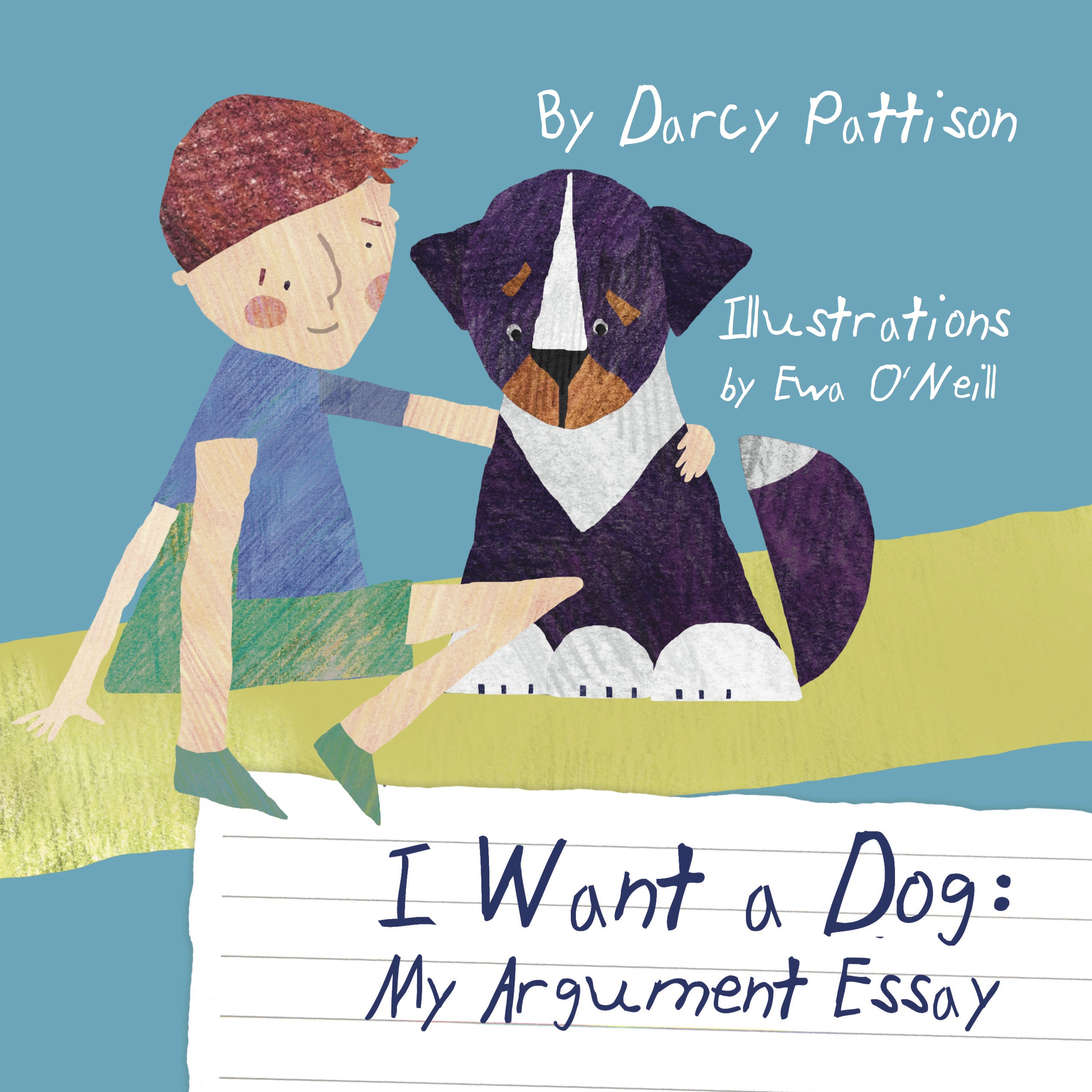
Today, I am discouraged.
My trusty friend, ART AND FEAR, says this:
“. . .artmaking can be a rather lonely, thankless affair. Virtually all artists spend some of their time (and some artists spend virtually all of their time) producing work that no one else much cares about. . . The sobering truth is that the disinterest of others hardly ever reflects a gulf in vision. In fact there’s generally no good reason why others should care about most of any one artist’s work.”
Yes. that’s how I feel today, that no one is much interested in any of my work.
Ho, hum.
So, what?
Fortunately, ART AND FEAR goes on:
“The function of the overwhelming majority of your artwork is simply to teach you how to make the small fraction of your artwork that soars.”
On those discouraging days, these are words to cling to!
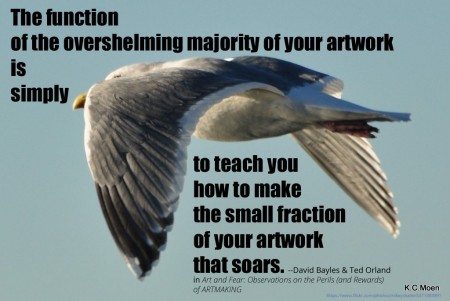

Note: The following post was originally published on the Writer’s Fun Zone blog, a site designed to help writers succeed and improve their author platform. When you have time, I urge you to check out this fantastic resource.
This post could have also been dubbed ‘Balance 101 for Authors’. About sixteen months ago the first novel in my middle-grade/YA time travel series hit the cyber bookshelves. There was so much to do, and it felt like there wasn’t enough time to do everything. I needed a time portal just to get all my marketing and promoting put in place. This included getting a website up and running, ordering promotional giveaways, setting up blog hops, writing blog posts, and joining the appropriate social media networks. The lists seemed endless, and when the date finally arrived for my book release, I was wearing my shoulders as earrings.
Needless to say, by the end of my first book blog tour, I was exhausted, spent, and bent out of shape. Even my eyelids ached.
What I learned from that whole experience last year is that authors need to learn to structure their writing life, or their writing will take a nose dive. We need to learn to create balance so that the task of being a writer plus a marketer plus a promoter doesn’t wear us down. So, how do we do this when so much is expected of a writer nowadays?
Start with finding your comfort zone. Find your personal comfort level with promotion or marketing, do that and do no more. That’s it. Do it. Or you’ll get burned. If you don’t heed my advice, then sure as shooting, negativity will leach into your writing. And that’s the last thing a writer wants!
Need help finding your comfort zone? Go to the dollar store and buy a timer. It will be one of the most important investments (and cheapest) as a writer you will make. For less than two dollars you can purchase a piece of sanity to help you organize your writing life and keep you in your zone. Set your timer to check emails. Fifteen minutes? Twenty minutes? Then do the same for Facebook and Twitter. But keep in mind which activity will help you as an author in the long run. Apply the 80/20 rule. Write (produce) for 80%, promote and market for only 20%. After all—social networking is a marketing strategy—as long as you treat it as such. Then, once you have laid the timer law down, set it for how long you want to sit and just write, with no interruptions (unless the dog really needs to pee).
So, stop pushing the zone. Relax. Let go. Breathe.
That doesn’t mean writers shouldn’t learn or try new things. By all means learn and try. Get your hands dirty if you must. But don’t burst a vein in your brain doing it. Don’t put so much pressure on yourself that you collapse into a quivering mass of writer goo. As writers, we must protect our work—and ourselves. It takes time to build an on-line (and off-line) marketing presence in this new publishing world. Learn this, cut yourself some slack, and prosper.
Thank you for reading my blog. How do you find balance as a writer? Love to hear your voices…
There are many people in the world eager to take the back end rewards without contributing effort at the front end. They have the attitude of entitlement. Asking, “What can I get out of it?”
Um…not how the Universe works. Sorry to burst your bubble.
Look at it this way: A farmer earns rewards after the harvest, putting in his or her effort (a.k.a. blood, sweat, and tears) up front by preparing the ground, planting the seeds, nursing the seeds, making sure the seeds are not crowded out by other species, and are properly irrigated. With me so far? Then after harvesting the crop, the farmer collects the back end reward. Having no idea at the start what that final reward may be, farmers know only what might come from their labors if they do everything right. If the farmer messes up or Mother Nature steps in and wreaks havoc, then it makes sense that a lesser reward is taken. The farmer is only entitled to the results of the harvest.
So how does this work for writers?
Simple. All writers should ask themselves, “What can I put into my writing career to get the best possible reward?” Figure out what steps you need to take, and from there follow the farmer analogy above exchanging the word ‘seeds’ for ‘books’. Every author writes for different reasons. To hit the bestseller list, you need to be in for the long haul. Patience is the name of the game here. To make any kind of money in this business—and like farming, writing IS a business—it takes time plus a back-list of about 4 books to produce a sustainable author career. You need a plan if you want to become a professional writer which includes some form of on-line presence like a website or blog (think irrigation). If you’re just writing for you and having a blast self-publishing on Amazon or Smashwords, you’re strategy may not be the same, but you will still earn rewards. So figure out what you need to put into your writing career/hobby and work toward those back end rewards.
Thank you for reading my blog. If you have time, please leave a comment and share what you’re putting into your writing career, and how it’s worked out so far. Cheers!
Have a Deadline. You knew this was coming. You’ve been dreading it. Deadlines seem to put the fire under your butt. For me, every time I sit down, I try to write at least a thousand words in 3-4 hours. I know that doesn’t sound like much, but I go over the scenes I’ve written and tweak them before writing any fresh stuff. The result is a more polished first draft. I know there’s loads of work to still be done, but setting this word count within a time frame helps me make my deadline to produce a book worth sharing with the world.
Remember to reward yourself. This is so important! We all need pats on the back, a fist bump or high five. Take yours. Give yourself something you’ve been promising yourself. It doesn’t have to be big. Just put yourself in the spotlight and enjoy your ‘me’ time.
Refuse to rationalize or make excuses. Take the ‘just do it’ approach. The ‘If it’s meant to be, it’s up to me’ mentality. Go to your plan. You have a plan, right? If not, create one. Follow it, check off what you’ve done, delegate where needed, and remember to breathe. Like the Boy Scout motto, ‘Be prepared’ and you have nothing to worry about.
Accept 100% responsibility. This is a no-brainer. You and you alone are responsible for your actions (or non-actions) so don’t go blaming the social media or your partner or watching the season finale of your favorite show (guilty) for taking you away from your task. Take the high road and carve out the time needed to get the job done.

I’m blogging at Books & Such today. Here’s a preview:
When you’re a debut author trying to break in to traditional publishing, one of the most important things to remember is this:
Minimize the obstacles.
You already know it’s not going to be easy to break in, so you want to avoid making it even more difficult on yourself. This is why agents give so much advice on their blogs. Not every piece of advice applies across the board to every author, but we’re trying to help you have the best chance of attracting an agent and publisher.
Assuming you’ve written a terrific book…
What are some possible obstacles to finding an agent and publisher?
Read the post at Books & Such to find out. Click Here.
The post Minimize the Obstacles appeared first on Rachelle Gardner.
 Today I’m ranting a little, but I figure you know me well enough by now, you can take it.
Today I’m ranting a little, but I figure you know me well enough by now, you can take it.
Here’s the deal: I don’t like the fact that you have to “build a platform” these days, any more than you do. But I get weary of writers complaining about it. I get frustrated by hearing that publishers are “abandoning writers” and “bringing nothing to the table.” I know it’s hard to market your books — I feel your pain — and yet I dislike it that people saying that publishers are shirking their duties by “leaving it all up to the author.”
REALITY CHECK:
Publishers did not create this brave new techno-world we live in.
It is not the publishing industry that has created this society of ubiquitous electronics, Internet noise, YouTube, X-Box, Facebook, Twitter, Instagram, Pinterest, Vine, and the decline of reading. It is not the publishing industry who put a computer in more than half of all American households, allowing millions of folks just like yourself to write books they want to sell.
It is not the publishers who brought our society to a place where it’s no longer possible to “market” books the old-fashioned way. It’s not the publishers’ fault that average human beings everywhere are being bombarded with literally thousands of pieces of information every day, making it more challenging than ever to draw a person’s attention to one little book.
The fact is, publishers are doing everything they can dream up, and everything they can afford, when it comes to marketing books. They have the same limitations you do: Time and Money. But they’re coming up with new ideas and innovations all the time.
Publishing is an “old world” industry, figuring out, day by day, how to thrive in this “new world.” We all face these challenges together. We all have to figure out how to get people to want to read our words… to want to PAY to read our words. We all have to figure out how to get our books to rise above the “clutter” and get the attention of readers who are willing to pay for them.
Those of you who find yourself bemoaning that “writers are expected to do everything” and concluding “we might as well self-publish” — perhaps the self-publishing route will work out better for you. For certain kinds of books and certain authors, it’s working out great. Give it a try!
But I want to point out that publishers are still in business because of the value they bring to the table — not just in marketing but in every aspect of the editing, production, and selling of books. It is harder these days to sell books than ever before, yes, but publishers are more than just a business selling widgets, they’re entities who take seriously the responsibility of preserving and disseminating the written word. And so publishing persists, despite the challenges, despite our changing world.
Part of the value publishers bring is a sense of history, a sense of tradition and permanence. Many authors still want to be a part of that. It’s about great stories and important thoughts. It’s about legacy. It’s about a dream. People in publishing still see this dream as worth it. They’re willing to swim against the tide because publishing isn’t just a business, it’s a life, it’s a calling, it’s a passion.
To all writers who believe in the dream, who have the passion, who feel called to the legacy — I’m right there with you, and so is everyone else who has staked their livelihood on this crazy, unpredictable, totally unrealistic business called publishing. Thanks for being here, and hanging on for the ride. To those who are frustrated by the ways it seems publishing can’t meet your expectations, I commiserate with you and I apologize that things aren’t the way we wish they could be.
To each and every author, I sincerely wish the very best for you as you seek your own way of getting your book to its intended audience. I am doing my best to be a positive and helpful part of this process.
Are you in it for the legacy? Or something else?
Comment below or by clicking: HERE.
TWEETABLES
Publishing is an old world industry, figuring out how to thrive in this new world. Click to Tweet.
Publishing isn’t just a business, it’s a life, it’s a calling, it’s a passion. Click to Tweet.
To all writers who believe in the dream, the passion, the legacy – I’m with you. Click to Tweet.
The post The Brave New World of Publishing appeared first on Rachelle Gardner.
 I’m blogging at Books & Such today. Here’s a preview:
I’m blogging at Books & Such today. Here’s a preview:
The business of publishing gives us frequent opportunities to feel like a success or … not a success. At every step of the journey, we receive feedback and results that tell us whether our efforts are working. It’s an uncertain path riddled with possibilities for disappointment.
→ We pitch our book at a conference and nobody seems to want what we’ve written.
→ We search for an agent, to no avail.
→ Our book is being submitted to publishers, but none are biting.
→ Our book is available for sale, but the numbers aren’t good.
→ We arrange a booksigning event at a bookstore, and nobody shows up.
When things happen that don’t make us feel exactly like a “success,” the instinct is to brand our efforts a “failure.”
I’ve been thinking a lot about this, and I no longer believe the opposite of success is failure. Instead…
Click HERE to read the entire post at Books & Such.
The post What is the Opposite of Success? appeared first on Rachelle Gardner.
The Writer's Life with Author, Dorit Sasson
Today, I’m pleased to be hosting Day 2 of a 5-day virtual book tour, sponsored by the Working Writer's Club, for Dorit Sasson’s two new books:
Speaking and Writing for English Language Learners: Collaborative Teaching for Greater Success with K-6
Reading and Listening for English Language Learners: Collaborative Teaching for Greater Success for K-

By:
Darcy Pattison,
on 2/18/2013
Blog:
Darcy Pattison's Revision Notes
(
Login to Add to MyJacketFlap)
JacketFlap tags:
Chip heath,
dan heath,
decisive,
made to stick,
switch,
writer,
author,
writing,
career,
book marketing,
writer's life,
planning,
be a writer,
Add a tag
Follow our Pinterest Boards
I was lucky enough to get an Advanced Reader Copy of Chip and Dan Heath’s new book, DECISIVE: How to make better choices in Life and Work. You may know the Heath brothers from their previous books, SWITCH: How to Change Things When Change is Hard and MADE TO STICK: Why Some Ideas Survive and Others Die. They are adept at taking massive amounts of research on topics with widespread appeal and distilling the information into something that can be used in daily life. In DECISIVE, they discuss decision-making and make it practical. Here, I have applied many of their ideas in a simple checklist: What manuscript should you write next?
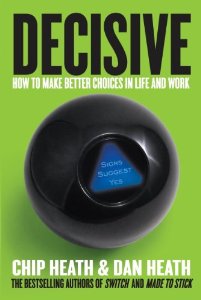 Courtesy of the Heath Brothers amazing insights into the applicability of much research, these are practical ideas to help you make the best decision possible. If you want to know more, DECISIVE will be released on March 26, available now for pre-order.
Courtesy of the Heath Brothers amazing insights into the applicability of much research, these are practical ideas to help you make the best decision possible. If you want to know more, DECISIVE will be released on March 26, available now for pre-order.
You just wrote, “The End.” And you hit the SEND button. The manuscript is off to the editor.
What now? How do you decide on the next project?
Build a Career
An agent once asked this question: What is the next logical book for you in terms of building an audience that will support your career?
Do you see the criteria embedded in that question:
- Build an audience
- Support your career
Is that what you want? A career with a growing audience? Then, you probably need to stick with the genre of your first book, and turn out a second book that will appeal to the same audience. If you wrote a mystery and it sold well, write another mystery—different, better, but definitely appealing to the same audience.
But it may not be that easy. Maybe several genres interest you and you want to try something new. But that might risk your career, because you aren’t building a consistent following. How do you sort out all your ideas and commit to the next project? Here are 15 questions to ask yourself.
15 What Next Questions
- Don’t Get Trapped in Too Small a Framework. The decision is rarely one like this: Should I do Mss A or not? Instead, try to look at a range of options. Here are ideas that I have, A, B, C, D, and E. Which of these would appeal to the same audience as my first success?
- What else you could write in the same time period. If it takes you six months to write a novel, what else could you get written in that time period? What project deserves that time commitment?
- What if you couldn’t write the Mss you had planned to write next? What would you write then? For example, if you were planning a picture book biography of Shirley Temple and one was just published to great acclaim, maybe it’s not the best time for this story. So, pretend something similar just happened to your pet idea. What would you do then?

- Could you write the openings of several different manuscripts and THEN decide which one excites you the most? Multi-tracking sometimes allows the cream to rise.
- Look at the career of someone you admire and want to emulate. At a similar point in his/her career what was the next book published? Or, look at a musician or actor/actress and find parallels in their careers. For example, Sean Connery could have gotten stuck in the 007 role and never found his way to new projects. Instead, he has regularly “reinvented” himself by taking risky roles that led to an expanded career. Is it time for you to write that “breakout” book you’ve been planning?


Looking over all the possible manuscripts and ideas—what has you the most excited? Which one are you scared to write—and therefore, will push you to write your best?
Ask the opposite question: if you have been writing mysteries, what if your next novel was a romance? Is this the time to make a switch or not? Can you carry any of your audience over to a new genre? Is there a way to work more romance into your next mystery, so the transition isn’t total, but pulls in readers from both genres?
Could you test new waters with a short story or a short ebook? Is there a way to TRY something new, without doing damage to your current audience? Once you decide on a new mss, you’ll have to commit wholeheartedly to write the best possible. But maybe you can take a couple weeks and try out a new market.
Are you too attached to the status-quo? Your publisher wants more and more of this one type story and you get paid. But somehow, you feel your passions are lessened. At what point do you need to shake up the status quo?
What would you tell your best writer friend to do in this situation?
What are you passionate about? What are your core values? Does Mss A or B or C or D allow you to express that passion better?
If you write this book and a year from now it fails(either not published or published to poor reviews), can you think why it would have failed to reach your audience?
If you write this book and it succeeds, can you discuss why it would make your readers excited about your work?
Do you set goals for your books? If this mystery doesn’t sell 10,000 copies, then I’ll try a different genre for my next project. Would a goal like that help you make the next career move?
Are there deadlines for this project, or can you create a deadline? You’ll devote six months to this fantasy story, and then, you must write your next mystery.
You have a choice to make and the choice will affect your future and your career as a writer. What will you write next? There are no right or wrong answers, only answers that please you. You’re in control. I know–that’s scary! But that’s another post.
Hey, Chip and Dan–What will YOU write next?

Finding the Sweet
Write what you want to write,
say the editors.
Write what you love,
say the editors.
I write.
I love this!
Well, say the editors, it lacks a plot.
OK.
I write what I love and
make sure it has a plot.
A good ‘un.
(Hey, I’ve studied Hunger Games,
and the Edgar winning mysteries;
I know a good plot
when I read it.)
I love this!
Well, say the editors, the voice doesn’t grab me.
OK. I write what I love and
make sure it has a plot and
make sure the voice is unique, compelling.
A good ‘un.
(Hey, I’ve studied the Newberys,
the Caldecotts, the Alexes,
the Sieberts,
the Edgars, and so on.
I know voice when I hear it;
and I know how to create it.)
I love this!
Well, say the editors, the plot
is great;
the voice
is great;
but I don’t really connect with the characters enough.
OK. I write what I love and
make sure it has a plot and
make sure the voice is unique and
make sure that the characters are connectable.
A really good ‘un.
(Hey, by now, I’ve read all the New York Time’s
Bestsellers, the National Book Award winners,
plus any other @#$#$@ novel
that anyone ever recommends.
I know a good book when I read it–
or write it.)
Hey, I really love this!
Well, says the editor, you got everything right:
plot, characters, voice–
but it’s too quiet.
Where, oh where is that sweet spot?
And how can I write something else
that I love,
knowing that
no one else will love it?
Where is that sweet editor?

A Sweet Spot.

It's hectic madness here at Casa Bradley. We're going on vacation in a few days, and for some reason, that involves insane preparation activity--almost to the point where you wonder: why do we go on vacation again?? I need a vacation from my vacation, people.
But the good thing is that I get to take a break from the daily grind, even if I love my work very much. There's the email inbox that overfloweth, the sink full of dishes that overfloweth, the laundry basket--as you can tell, there's a lot of overflowing in my life. Stuff's busy.
The one tough part: unplugging from the ol' internet. Since I work for myself, the floweth never really stops. There's manuscript editing, email, blog posts, articles due. And then there's Twitter, Facebook, Pinterest, Google+, Blogger--you get the idea. As writers, we live on the internet. So it's a little weird to unplug for a few weeks, I have to say. Not that the internet will miss me, what with the gazillion other people on it.
I'm really looking forward to just forgetting about the WWW for a little while, though. I'll come back with that vacation smile, and renewed energy (also with a suitcase that overfloweth with laundry, but I won't think about that now).
How about you all? Do you have scheduled unplug time?
.jpeg?picon=3075)
By:
Fleur Bradley,
on 5/2/2012
Blog:
YA Sleuth
(
Login to Add to MyJacketFlap)
JacketFlap tags:
Writer's life,
For Writers,
agent resources,
YA agents,
MG agents,
information on agents,
How to find an agent for your book,
Kidlit,
Literary agent,
Add a tag
I have a YA/MG/(fill in the blank) manuscript. Who's your agent?
I get this question a lot now, and the answer is more difficult than you'd think. Not because my agent is top-secret (he's Stephen Barbara at Foundry, and yes, he's awesome), but because finding an agent should be more involved than asking for a name. And I didn't always know that either, so I thought I would give you the five-minute answer here.
How you should select your agent:1. Does (s) he have the same vision for your manuscript (and career) as you do?This seems like an easy one, and "I don't care, as long as (s)he sells it!" is not the right answer. You'll be doing edits, changing plot lines, characters--your agent will also be your editorial adviser. Make sure YOU know what you want your work-in-progress--and your career as a writer--to be.
2. Do you communicate well with each other?This is a big one, and I didn't get that until I worked with some people who just didn't communicate like I do. I like straight answers, directness, specificity. Just tell me what stinks. Some people like an agent who talks in broad terms, maybe you're looking for lots of small talk or weekly updates. Think about all this before you sign with an agent. Ask questions. Talk a while, and ask yourself if you're both on the same page.
3. Has (s)he sold manuscripts in your genre?You need an agent who has the connections to editors, and having sold manuscripts is the real test here. If you go with a brand-spankin' new agent, make sure they're with an
agency that has those connections. See the resources below on how to get this information.
Ask your prospective agent where (s)he thinks your manuscript might fit (publishing house, editor). Better yet, do your own homework, and know who publishes what in your genre.
4. What agency is the agent with?You want an agent who has access to other agents, to sell foreign rights, movie rights, etc. If the agent is a solo op, ask how (s)he handles this.
These are just a few questions I would ask. Think of your own, and add them to the list. You'll be working closely with your agent, so make sure (s)he is
the right agent for you.
Here are some resources online, so you can research stuff:
Publishers Marketplace: Agents get to design their own page here, so you know you're getting the info about submitting, etc. straight from them. You can subscribe to get access to Publishers Marketplace's deals database (see #3 above).
Agentquery: Great for a quick database, but make sure you check all info against the agent's website.
Preditors and Editors: To make sure your agent didn't sell swamp land in Florida last week. Simply check the name against their A-to-Z database.
Jacketflap: A hub for kidlit writers, editors and agents. Vet any agent name against the sources above, because remember: anyone can call themselves an agent.
AAR: Association of Authors' Representatives--a regulating organization that's all about protecting your rights. Extra points if your agent or their agency belongs to AAR, because that means they'll adhere to their canon of ethics. Belonging to AAR comes with a price tag, though, so I wouldn't rule out an agent based on their AAR membershi
Random Acts of Publicity DISCOUNT:
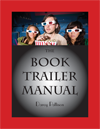
$10 OFF The Book Trailer Manual.
Use discount code: RAP2011
http://booktrailermanual.com/manual
4 Ways to Battle Discouragement
When you are so very, very tired of yet another rejection, when discouragement threatens to overwhelm you, what do you do?
Friends: One antidote is to stop writing and be with friends. Writer-friends are especially helpful because you can commiserate endlessly (read: complain) about how callous those horrible editors are, how short-sighted, how bad their taste in literature is not to recognize genius when they read YOUR mss. Second best is a DH, who’s been there through the worst of it with you and been there through the good (Thanks, D!) Mostly, you just need someone who love you and understands that these creative efforts are necessary for your well-being–even when you get rejection after rejection.
Past Successes: Yes, you have past successes. You have finished a story, maybe even a whole novel. Don’t look right now at the fact that it needs a big overhaul; just look at what you’ve accomplished! 50,000 words in a month! 3 picture book manuscripts polished and sent out this year. You’ve taken solid, positive steps in the right direction. Your cup is half full, not half empty! Look!
Get out of Town: This weekend, my DH and I went camping and hiking. Back to nature, where no words on a paper/computer screen make a difference. Here’s a couple shots from the Buffalo National River. One thing this does for me is remind me to look for small details. It fills my tank of sights, sounds, smells, textures, so I have something to put in my writing later. The shoe was at an old abandoned farmhouse. You may not like camping (silly you!), but sometimes you need a break, a change of scenery, a day off. Get out of town!

Earbie Campground, Buffalo National River. Click to enlarge

The view from Goat Bluff, near Earbie Campground. Click to enlarge

Shoe: found at Farmer's Farmstead, abandoned farm near Earbie Campground. Click to enlarge
Read Art and Fear
 One of the most common complaints about traditional publishing is how long everything seems to take. We’ve heard these grumblings for as long as I’ve been in this business, but it’s certainly increased in this digital age where immediate gratification rules.
One of the most common complaints about traditional publishing is how long everything seems to take. We’ve heard these grumblings for as long as I’ve been in this business, but it’s certainly increased in this digital age where immediate gratification rules.
To the author it seems like publishers do everything at a glacial pace. The funny thing is, when you work in a publishing house, you’re always moving at top speed, overwhelmed by how much needs to get done in a short amount of time. Things actually move very quickly for the editors, designers, marketing and sales people. The days fly by. Each person has dozens of projects in play at any given time, and it’s crazy managing them. They can’t do much but chuckle and shake their heads when everyone accuses them of being slow.
So why is there such a disconnect between publisher realities and author perceptions? Let’s look at a couple of different aspects.
“Publishers are SO Slow to Make Offers”
To authors, it seems like publishers (and agents) often take forever to make yes/no decisions on acquiring projects. And that makes it seem like publishing “moves slowly.” But the reason it seems slow is because your project is just one amongst dozens or hundreds on each agent/editor’s desk at any given moment. It may be taking a long time to get to yours… but it’s just because of the volume everyone is dealing with. In reality, everyone is making decisions at exactly the speed they need to, in order to fill their lists. Sometimes it’s slow, sometimes it’s fast. But you can be sure that no matter where in the pile your project is, this process isn’t all about you. Don’t take the perceived slowness personally.
“Publishers Have SUCH Long Lead Times”
These days, you can get your book up for sale on Kindle within a matter of days after you finish writing it. So authors have less patience for publisher lead times, which are still often 12 to 18 months from contract to book release. Writers want to know why it’s so slow, and they’re constantly asking why publishers can’t speed it up.
Well, they could speed it up if they wanted to, and for certain (“fast track”) books, they do. But what you’re getting in that longer lead time is an editorial process to help your book shine; professional interior and exterior book design; and obviously your book gets printed and shipped to stores. That all takes time.
However, that’s not even the biggest reason for the long lead times. The fact is that even in this digital age, it’s the sales and marketing aspect that requires long lead times. This is where all those things you get with a traditional publisher that you don’t get with digital self-pub comes into play. There’s a whole marketing team that needs to read some or all of your book and plan their strategy. Even if their marketing efforts aren’t visible to you, they’re still sending your galleys out for review; contacting appropriate media outlets; and placing your book in the right retailer, wholesaler and trade catalogs, all of which require long lead times. Then there’s an entire sales team that also needs to read some or all or your book, and go out on the road to visit their accounts. This is all happening months before your book release.
So because of these very real marketing and sales realities, publishers are usually wary about a contract-to-pub span of less than 12 months.
Take It or Leave It
Of course, sometimes your long lead time is just a matter of scheduling. The publisher may want to acquire your book, but there’s no slot open until 18 months from now. Or 24 months. You have a choice to make. Sign the contract and deal with the long
I frequently field phone calls from clients who are going through a rough patch in their frame of mind. It turns out being a contracted and published author doesn’t automatically fill you with self-confidence and unending affection for your own work. Who knew?
The reality is that the publishing journey is fraught with emotional land mines—dealing with the editorial process, reading your reviews, settling on just the right idea for that next book—that can make you feel insecure and like a fraud.
I can’t write! I have everyone fooled. I am an imposter. What made me think I could call myself a writer?This, of course, is a normal part of being a writer. If all goes well, you
will have some moments of loving your WIP and you’ll appreciate your newly published books when they land on your front porch in that UPS box. You’ll even continue to enjoy the process of writing. But you’ll probably also have moments when you’re sure that everything you’ve written is garbage and you’re terrified you’re going to be found out.
And it’s a good thing too. Because it’s that very insecurity that will drive you to keep growing, keep learning, be the best you can be. Lately I’ve been quoting the famous yoga teacher BKS Iyengar to my clients. He said, “The moment you say ‘I have got it,’ you have lost everything you had…The moment you say ‘I am satisfied with that,’ stagnation has come. That is the end of your learning; you have closed the windows of your intellect.”
If you believe that, then you see that we really need to look at writing and publishing as a journey, and take from it what we can while we are in the middle of it. It’s part of our larger process of growing and developing as people; it is not a question of “arriving” but more a discipline of figuring out how to keep going.
Don’t worry about yourself when you’re feeling insecure or even hateful toward your writing. Accept it as part of your journey; ask yourself what it means, how it can spur you on, what it drives you toward.
Let yourself feel satisfied for brief moments, then go back to the natural state of the writer: insecure, frustrated, driven.
It’s a great life, isn’t it?
Tell me about your own insecure moments. How do they help you?If you haven’t yet, drop by my Facebook page and click “Like.”www.facebook.com/agent.rachelle
© 2011 Rachelle Gardner, Literary Agent
I’m taking a blogging break this week. Hope you enjoy this post from my archives.
"Close the door. Write with no one looking over your shoulder. Don't try to figure out what other people want to hear from you; figure out what you have to say. It's the one and only thing you have to offer." ~Barbara KingsolverMy husband and I were going out to the movies. We were in the mood for something light so we chose something that looked cute and funny. We knew it wouldn't be a moviemaking masterpiece, so even though the critics had been harsh, we decided to take our chances.
Before the movie we went out to dinner, ran into a friend and chatted for a bit. Her dinner companion, whom we'd never met, heard what movie we were going to see and blurted, "Oh, it's really bad." We were taken aback and I'm sure she could see it in our faces. She continued, "Yeah, I saw it last night, it was just like, really stupid. A waste of time. But hey! Maybe you'll like it! Have fun!"
That was kind of a downer. But we already had realistic expectations of the movie, and it turned out we thought it was cute, fun, and funny. A thoroughly enjoyable night out. The general response of the others in the theater seemed to agree with us.
The experience got me thinking about a whole bunch of things... like how our expectations influence our experience. And how art and entertainment are so subjective (as we've discussed so many times on this blog.) Those thoughts led me to another conclusion I keep coming to over and over:
Since we can't please everyone with our work... since readers (like movie watchers) bring their own expectations and subjectivity to their experience of our work... it doesn't make sense to try and predict what people want to hear and write that. You'll never get it just right. Instead, simply
write your own truth. Say what you want to say. Be honest in your writing—honest about who you are, what you think, what you question and doubt, what you fear—and eventually, as you master the craft, you will connect with readers.
I doubt you'll make that connection as long as you're just trying to predict the market; as long as you're writing what you think publishers are looking for; as long as you're resisting writing from your deepest core.
Many factors will influence whether you're published and whether you have commercial success—including the market, and the overall quality of your writing (which can be judged by many different criteria). But your writing will improve and connect with more readers as you get better at writing what
you think and feel and know rather than what anyone else wants to hear from you. Keep in mind that you can do with within any genre that exists (or any that haven't been coined yet). You can express your truth in a paranormal romance as well as a dystopian YA fantasy or a crime thriller.
Readers' opinions of your work will vary but in the end, the way anyone responds to your work will only
matter if you've written the truth as you know it, or are discovering it.
Of course, you're always hearing how important it is to learn the market and know what's saleable, and you may be tempted to attenuate your writing to fit the market. But even if you're writing toward the market, you also have to write your truth. It's what usually produces the best writing, the kind that touches people and makes them think and feel.
This is what you have to offer the world:
Yourself. Put it on the page, even if it's scary.
If you haven’t yet, drop by my Facebook page and click “Like.”
www.facebook.com/agent.rachelle
© 2011 Rachelle Gardner
I’m taking a blogging break this week. Hope you enjoy this post from my archives.
When I decided to become a literary agent, I received advice from several wise people who knew what I was getting into. They told me it would be a steep learning curve, it would be challenging to build my business from the ground up, and that it would take a few years to really start seeing results.
Numerous times over the last three-plus years I've felt challenged nearly to the breaking point. There have been moments I've wanted to give up. But something always made me think back to the beginning and all the great advice. Then I'd think, "Oh yeah, they said it would be hard. I guess this is what
hard feels like." Realizing that things were progressing
exactly as expected, I'd gather the strength to continue.

There are going to be times like this in your pursuit of publication. There are going to be times when the
waiting is interminable. You've been advised again and again that the publishing business takes
patience, and that's true even after you have an agent, even after you have a publishing contract, even after you have books out. You're going to freak out and think, "I am so SICK of waiting." That's when you should look back and remember how many times you were told this would take patience, and tell yourself, "Okay, this is it. This is where the patience comes in. I can do this."
You've been told that the published-author life isn't glamorous and in fact can get pretty stressful when you're trying to write one book, while doing revisions on another, and maybe even marketing another. And you might think, "This is CRAZY, how am I expected to do this?" That's when you remember all the times you read on blogs that it would be difficult, and tell yourself, "Okay, this is what I signed up for. They said it would be difficult, and this is what
difficult looks like. I can do this."
Those hard moments, the ones when you wonder why you're doing it, the moments when you think you want to give up... those are where the rubber meets the road. Those moments are when you prove to yourself
who you are and
what you're made of. Those are the moments that separate the men from the boys, the writers from the wannabes. They are your moments of truth.
You never know what you're made of until you're tested. Until you hit the hard parts, everything is hypothetical. You don't prove your commitment until the moment you don't
feel like you want to be committed. You don't prove your stamina until you're tired but still must go on. You don't prove your strength until asked to lift something you think is too heavy.
When your moment of truth comes, remind yourself: They told me it would be hard. This is what hard feels like.
I can do this.
If you haven’t yet, drop by my Facebook page and click “Like.”
www.facebook.com/agent.rachelle
© 2011 Rachelle Gardner, Literary Agent
"This book isn't going to work."
I know many of you worry that agents gossip about writers behind the scenes. I don’t find this to be true, but what I've found is that agents often commiserate with each other about the hard parts of the job (like people in any kind of job). And one of the hard parts is when we need to have a difficult conversation with an author. So this week in my never-ending quest to make you the most informed writers on the planet, I'm going to talk about some of those difficult conversations. I hope that by reading this, you'll be better prepared and perhaps less devastated if (when?) it happens to you.
Today's difficult conversation is the one where you've written your "next" book—it could be your third or your fifth or your eighth (whatever)—and send it to your agent, or perhaps it's sent to the publisher. In any case, the agent or editor reads the manuscript and... things aren't going well.
I know my author is a good writer. As I begin reading, I can tell that, as usual, this book is amazingly written. But when I'm a couple chapters in, I start to wonder about it. A couple more chapters and this foreboding is stealing over me, growing page by page. By the time I'm halfway through the manuscript, there's this lump in the pit of my stomach. I push myself to continue. By the time I finish, I just know. It's not going to fly.It might be the subject matter is all wrong. It might be a genre that's just too different from what you've written previously. It might be the tone is off, or the plot isn't well constructed, or the characters are cardboard, or you've simply strayed too far from the brand you've established. Sadly, it might feel like you phoned it in.
Regardless of what the problem is, now a serious internal wrestling sets in, as the agent or editor examines the manuscript and thinks about options.
Maybe it just needs a good edit. Maybe it's not a lost cause. Maybe we can tweak a few things... maybe... maybe...
But finally, we're forced to admit to ourselves that we simply can't sell this, and it's unlikely that an edit will help.
Now we begin to stress about telling the author. After all, you've probably agonized for months over this manuscript. You finished it, triumphant, another 85,000 words written! You may even feel like it's your best book ever. How am I going to tell you it's not going to work?
I remind myself this doesn't mean the manuscript will never get published, it just means that now is not the right time. I remind myself that the only reason we need to have this conversation is because it's my job to help you not only get published, but get
well-published. It's my job to keep my eye on your long-term writing career. And so I can't be afraid to tell you the hard truth when I believe it's in your best interest.
I pick up the phone and make the call, and what I wish I could say is, “This hurts me as much as it hurts you.” But I don’t, because I know that no matter how hard it is for me, it’s worse for you.
I’m really sorry to be the bearer of hard truths sometimes.
Q4U: Have you considered that this might happen as part of your publishing journey? How do you think you’d respond?© 2011 Rachelle Gardner, Literary Agent
Agents get questions through email and in our blog comments every day. Most of us respond as we're able, either on our blogs or via email. But there is one kind of question that an agent (who isn't your agent) can’t answer for you.
That question is:
What should I do?I get this in a few variations: Should I pursue self-publishing or traditional? Should I fire my agent and find a new one?
These are questions that nobody can answer for you based on a few sentences of information in an email. It’s also the kind of thing that I can’t be advising you on if I don't know you.
I welcome questions here… I love questions and I want you to send me more! But take a good look at your question. Is it something about the industry, something that others will benefit from? Or is it more of a request for someone to make a decision for you?
The point of all these blogs—the ridiculous amount of publishing discourse spewing out over the Internet everyday—is to give you the context, the background, the general information you need…
in order to make good decisions.
As an author pursuing publishing, you have some complex decisions ahead of you, and the only way to make them is to educate yourself. At the moment of decision, you’re on your own. And honestly, you don't need an outsider to tell you what to do.
Gather information. Pick a direction. Take a leap.
There are no guarantees.
Q4U: What questions do you have that you’d like me to answer on the blog?© 2011 Rachelle Gardner, Literary Agent
I’ve belonged to several book groups over the years, and some time ago one of my groups started a new book that I hadn’t helped select. I began reading and quickly pegged it as a Really Bad Book.
Not that I'd tell anyone, of course. (Just you.) But I couldn’t stop thinking about how poorly the book was crafted, how I would have edited, how cheesy it was. Normally when I read for enjoyment, I'm fairly good at turning off my internal editor. But not this time.
Then I found out that Really Bad Book had been out for almost a decade, was a perennial strong seller, and had even been made into a movie (direct to DVD). Clearly others had a different opinion than I did.
What gives? How can this happen? How can such a badly written book
(in my opinion) go on to such success?
It happens all the time—there are lots of books that you or I would consider badly written but sell boatloads of copies and even become movies. I struggle with it, as I know many of you do. I drive myself crazy wondering why I can't sell some of my clients' fantastic books when
that stuff is getting published.
Getting PerspectiveBut then I have to take a step back and remember why I'm in this business in the first place. I love books. I love writing and I love writers. It doesn't mean I have to love
every book specifically; but I love the fact that there are so many different people writing so many different books. It takes all kinds, right?
And besides, I'm just one person with an opinion. Who am I to judge? Some of the books I love would undoubtedly be called Really Bad by others.
I'm so glad I have the freedom to choose which kinds of books to read, which ones to represent...and which ones to pretend don't exist!
As for the
Really Bad Book Book That Did Not Appeal To Me, I tried to change my attitude and read it with as little judgment as possible, but I found it difficult. I couldn't read more than a third of it. So for that particular book group meeting, I stayed usually quiet, knowing if I opened my mouth I'd probably regret it.
How do you deal with the fact that there are so many books that you think are BAD? Does it cause you any frustration? Resentment? What helps you put it all in perspective? (Please don't name any books in the comments.)
© 2011 Rachelle Gardner, Literary Agent. An earlier version of this post ran on my blog in 2009.
I would love to know about your writing routine, because if someone asks me that I look at them funny and say, "What's that?" My four-year-old seems to think that whenever I sit down at the computer it's time for him to need food/attention/a playmate/you name it.
I have to admit I almost didn't include "writing routine" on my list of ideas to get you readers thinking, probably because my routine is never the same. My husband had a seminary professor that used to describe balance as "momentary synchronicity" -- a great way to also sum up my writing schedule. What works for me now didn't work for me while I was teaching and certainly didn't work when I was home with toddlers.
During my teaching years, my creative energy was spent by the end of the day. The school year was for revision; the summer for new drafts. As a stay-at-home mom, I aimed for three writing sessions a week. Some lasted ten minutes, others, when I had a sitter, were two-hour stretches. It took me a long time to move forward, but in those phases of my life, that's the way things worked.
Word counts stress me out, especially because I spend so much of my time working on verse or picture books. It can take me weeks, sometimes, to move past a handful of words. What I've found to work for me is general monthly goals. In the last few months, I've focused on working with my editor on revisions, line edits, and copy edits on one novel; returning revisions to my agent on another; and beginning (then beginning again) research on a third novel.
Have I met every goal? The ones with deadlines, yes. The others? No. My hope was to have finished the research by now. But when I look back over the last few months, I have done a huge amount of work. Writing, I've learned, isn't something I can quantify. Maybe this will change in the years to come, but for now, general monthly goals keep me motivated and free to let the words come.
What's it like to live in the desert?
The desert is my first love, so I've returned to New Mexico utterly biased. When I first moved here in 1980, I'd spent three years in the deserts of Saudi Arabia. This place was lush in comparison. When my husband moved to Albuquerque as a boy, he moved from Michigan, and this place took quite a bit of getting used to. I suppose what you love in part stems from what you've been exposed to. I've happily lived in and loved a variety of places across the country and around the world, but nothing compares to the New Mexico desert. With the low humidity and high elevation, everything is sharp and clear beneath a turquoise sky that reaches from the Sandia and Manzano Mountains in Albuquerque all the way to Mt. Taylor (150 miles to the west and visible from the city). The scrubby juniper bushes smell like my childhood. The chamisa and tumbleweeds add a natural beauty. The dirt smells glorious after the rain. It's heavenly and familiar and lovely. I've been happy everywhere I've lived, but I'm thrilled to be home.
Thanks, all, who participated in this question and answer session.
Guest Blogger: Richard Mabry
(Book giveaway today! See below.)
 Rusty Greer is my hero. Many of you won’t know who Rusty is, but any fan of the Texas Rangers will recognize the name. It conjures up images of a red headed kid from Alabama whose uniform was always dirty at the end of the game, who never seemed to give up.
Rusty Greer is my hero. Many of you won’t know who Rusty is, but any fan of the Texas Rangers will recognize the name. It conjures up images of a red headed kid from Alabama whose uniform was always dirty at the end of the game, who never seemed to give up.
Rusty always wanted to play professional baseball. It was his dream. But like a lot of us, that dream didn’t come with talent automatically attached. So what Rusty lacked in ability he made up in hustle and ‘want-to.”
He played baseball in high school, but when he was a senior, only Alabama’s University of Montevallo showed any interest in him. No matter. He attended, played on the college team, worked hard, and caught the eye of the pro scouts. The Texas Rangers drafted Rusty (although he wasn’t chosen until the tenth round of the draft). He was on his way.
Rusty advanced through the minors, always playing hard, always giving his best. When he finally got the call-up to the major league team, he contributed with effort and hustle. During his career, his all-out style of play resulted in surgeries to fuse vertebrae in his neck, repair a rotator cuff tear in his shoulder, transplant a nerve in his arm (the so-called Tommy John surgery), and remove scar tissue from his elbow and shoulder. When he finally retired, he’d parlayed average talent and above average “want-to” into a career that made him a fan favorite.
As a young man, I wanted to be a professional baseball player, but those dreams died, and I went into medicine instead. I never thought I’d be a writer, but after my retirement from medicine, I began to try my hand at fiction. And it was tough. I wrote and revised and submitted and was rejected and wrote some more. I discovered that I wasn’t alone in this situation. There were hundreds of attendees at my first writer’s conference, and I was told that there were only a handful of slots open for publication by new authors. I could give up, just as I’d done with my own dream of playing in the big leagues, or I could persevere. It was a matter of how much “want-to” I had.
Finally, there did come a time on my road to writing when I decided to quit. But through a series of circumstances that can only be called a “God thing,” I was encouraged to try one last time. And this time it worked, although success didn’t come immediately. The process was a long one, full of more work and fraught with even more disappointments, but it paid off. My third novel of medical suspense was just published, and the fourth will be out this fall. I sometimes wonder how things would have played out if I hadn’t decided I had enough “want-to” to give it one more try.
You may sometimes want to give up, too. But I hope you’ll take a close look at your writing efforts, including the reason you’re writing, and see if there’s enough “want-to” in you to keep going. After all, the odds of succeeding may be small no matter how hard you try, but they’re zero if you don’t try at all.
Q4U: Have you ever been discouraged? Ever wanted to give up? How did you find the "want to" to continue?
***

By:
Tera Lynn Childs,
on 4/19/2011
Blog:
Books, Boys, Buzz
(
Login to Add to MyJacketFlap)
JacketFlap tags:
travel,
Writing,
conference,
writer's life,
Tera Lynn Childs,
writers' conference,
other writers,
Add a tag
After a twelve day sojourn that took me from Oklahoma to Los Angeles to Houston to Austin to Houston and finally back to Oklahoma, I am finally home in Poketown (aka Stillwater, OK). This is just my temporary home, of course, because I am working on getting to Seattle this summer, but my bed and my puppy were waiting for me, so home it is.
One of the things I love most about conferences and conventions (besides meeting fabulous fans and readers and bloggers and librarians) is getting to hang out with other writers. This always energizes me, recharges my writerly batteries and I come home eager to write-write-write.
This is an especially good thing right now because I have a book due, like, yesterday. (Okay, June 1st, but it feels really really close.) And, while I won't admit my current page count (it's pretty small) or how much I plan to write in the next two weeks (it's a lot) I will say that I'm going to be nose-to-the-grindstone to get Sweet Venom 2 done early enough to revise it before sending it off to my editor by deadline.
Before I left on my big trip I ordered a new Alphasmart. My old one had been my dear companion for many years, but the keys started getting sticky (even after I took them all off and cleaned off the sub-key gunk) and it hurt my wrists to type on it for very long. So my shiny new, non-sticky-keyed Alphie is charged and ready to go. I'm charged and ready to go. Operation: Write That Book is about to begin. (Sophie Jordan and I are going to do daily #deadlinedash check-ins on Twitter, if you want to follow our progress.)
With all the book inspiration I've accumulated in the last two weeks, I'm ready. Wish me luck!
Hugs,
TLC
View Next 25 Posts



 (This is a re-post from one year ago.)
(This is a re-post from one year ago.)





 Today I’m ranting a little, but I figure you know me well enough by now, you can take it.
Today I’m ranting a little, but I figure you know me well enough by now, you can take it.




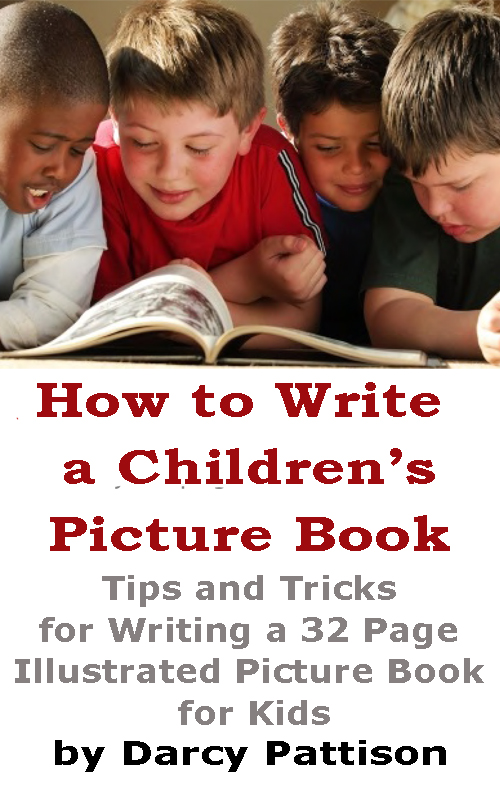
















Great post! Tweeted!<br /><br />My writing sessions usually last 90 mins. That seems to be a magic number for me. Then I take a break and then do another 90. On a perfectly blissful day, I do 4 sessions.
Great writing tips, Dorit! Finding time for both writing and kids can be challenging, but as you've noted, finding ways to work with your schedule and natural writing times can keep the progress going. And congrats all around!
Thanks everyone for your comments!<br />Dorit
Dorit, It's been a pleasure having you here! Best wishes for your book's success.
Dear Karen<br />Thank you so much for hosting the tour!<br />Dorit
It was so fun to have an inside peek into your typical writing day, Dorit! Thanks so much for sharing.
As a relatively new freelancer, I find it refreshing to read about seasoned writers and see that they have the same struggles as I do and that even with the struggles we all face, somehow we get the job done. Very encouraging to read about a typical work day. <br /><br />Congratulations on your success as you learn to balance your work and family life Dorit!
Nancy, thanks for stopping by and supporting Dorit!
Phyllis, it is pretty much the same for all writers, managing life, family, and writing. You have plenty of company. Thanks for stopping by!